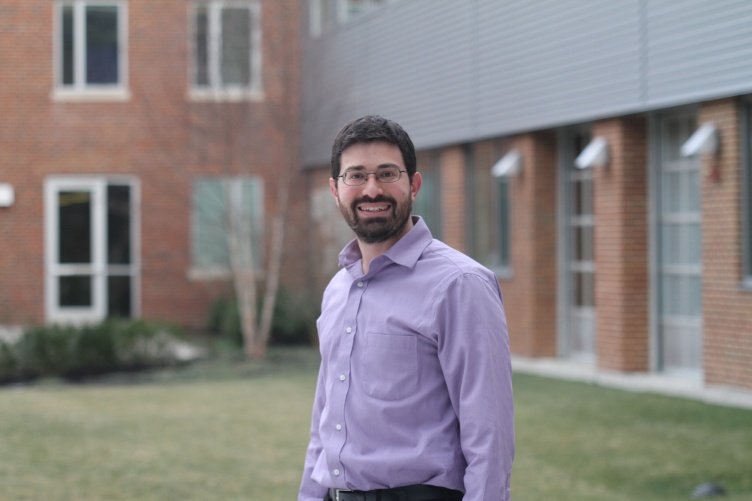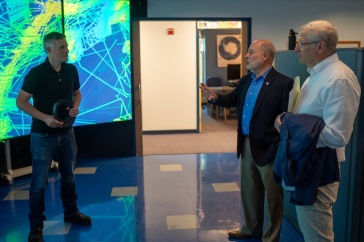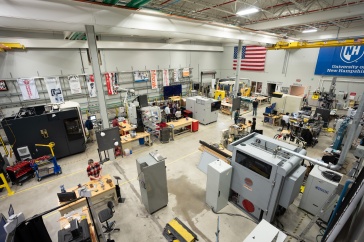
Jeffrey Halpern, associate professor of chemical engineering and principal investigator of a $6M NSF EPSCoR grant.
Researchers in UNH’s Surface Enhanced Electrochemical Diagnostic Sensors (SEEDS) Lab have received an EPSCoR grant from the National Science Foundation for close to $6 million to lead a team in developing sensors to promote quality control in biomanufacturing — the production of important biomaterials used in medicine, food and even engineered human organs — a field that is becoming a significant sector of the economy.
“This NSF grant will allow us to take full advantage of the anticipated growth in the biotechnology and advance manufacturing sectors, which will be important drivers of the economy in the coming decades.”
“Right now, biomanufacturing industries are not limited by a lack of production mechanisms, but rather by a lack of effective tools for monitoring quality in real time,” says Jeffrey Halpern, associate professor of chemical engineering and principal investigator on the grant. “This NSF grant will allow us to take full advantage of the anticipated growth in the biotechnology and advance manufacturing sectors, which will be important drivers of the economy in the coming decades.”
The research will consist of four collaborative projects and will focus on each sensor component; these components will be integrated into a single sensor device in Halpern’s SEEDS Lab. “The collective work will lead to a final sensor platform to address the current limitations that industry faces by creating affordable on-demand sensors needed to continuously monitor protein levels in the biomanufacturing process,” says Halpern.
Halpern will lead an interdisciplinary team of researchers from Auburn University (Robert Pantazes, chemical engineering), University of New England (Eva Rose Balog, mathematics and physical sciences) and University of Wyoming (Caleb Hill, chemistry) to develop on-demand biosensors for continuously monitoring proteins in the biomanufacturing process.
In addition, workforce development will be integrated throughout the project and will include manufacturing training for a new biotechnology workforce in Alabama, Maine, New Hampshire and Wyoming. “We will be welcoming new academic and industry internship opportunities by building new industry partnerships and providing mentoring programs to promote diversity, equity and inclusion in the workspace,” says Halpern. “Further, in consultation with Andrew Crawley, professor economics at the University of Maine, we will evaluate important drivers of the economy as we build programs to train a new biotechnology workforce.”
Industry partners in each of the four states can contact Halpern to learn more about getting involved.
-
Written By:
Erika Mantz | Communications and Public Affairs | erika.mantz@unh.edu



















































